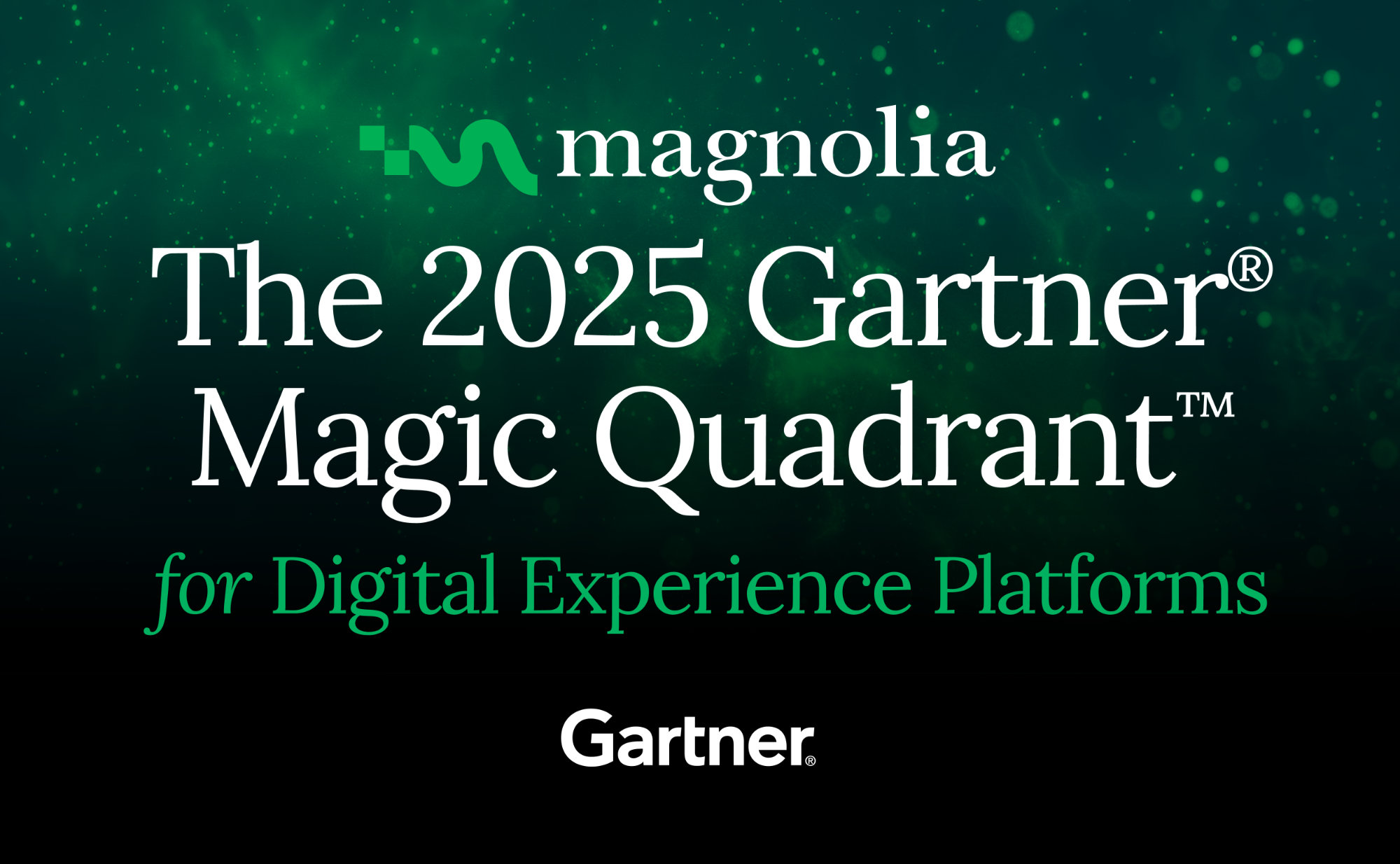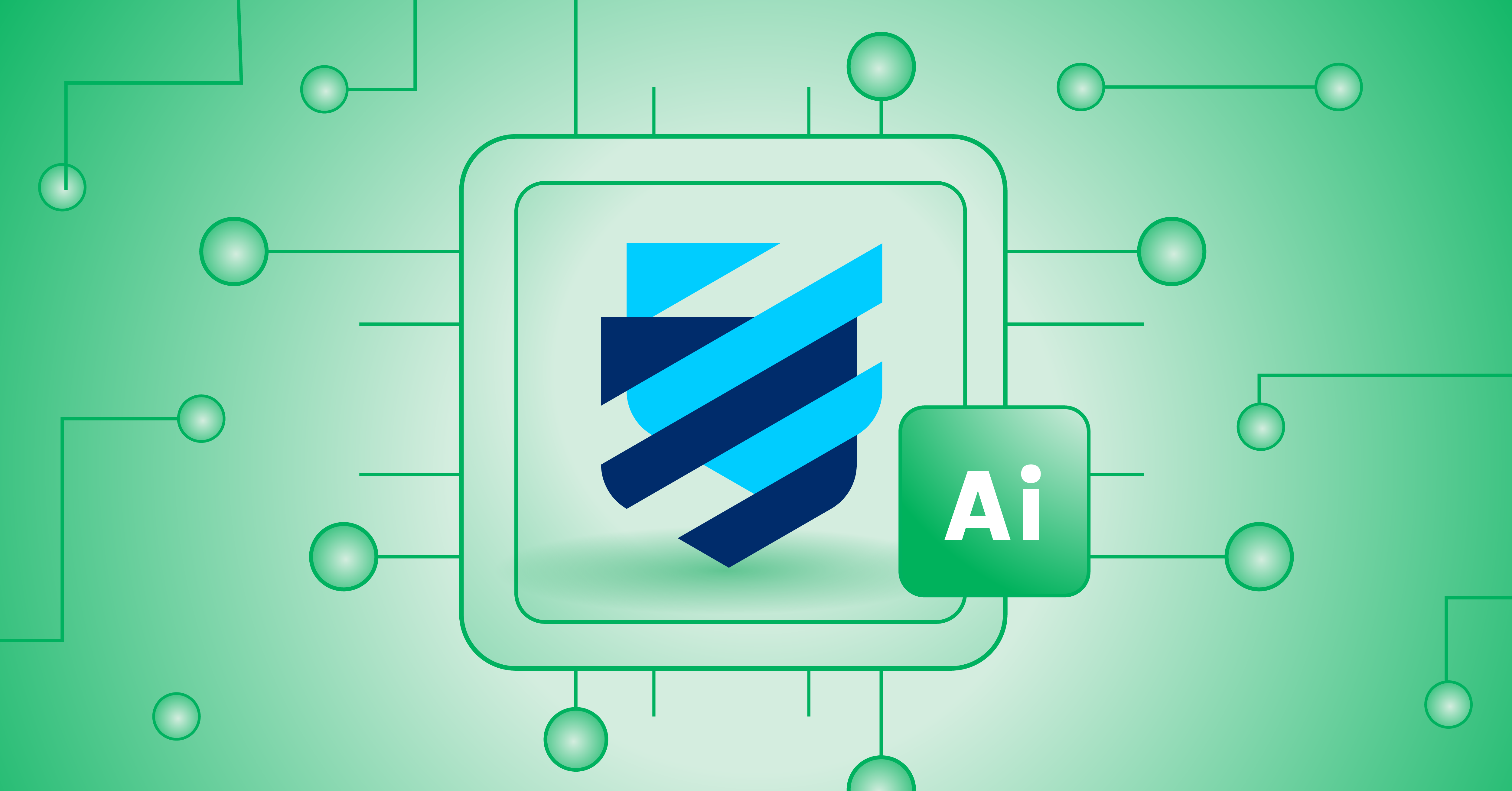- Feb. 1, 2021
- 4 min
Customers Now Innovate Faster Than Software Companies
In the new landscape for digital experience platforms, fast-moving enterprises need composability, and they need to challenge their suites
Magnolia in Aktion
Unser Expertenteam zeigt Ihnen live, was Magnolia für Sie leisten kann.
Jetzt Demo buchenA German chancellor famously once said, “People who have visions should go to see their doctor”. Still, when it comes to digital experience, you need to have a clear vision to guide you in the midst of day-to-day chaos and challenges. Martech is moving fast enough to throw organizations off course if there isn’t a stable vision guiding tactical decisions.
Specifically, when it comes to speed of innovation there’s a new fundamental game-changer for the dynamics of the DX market. This was most accurately pointed out recently by Cleve Gibbon, the CTO of Wunderman Thompson:
Customers now innovate faster than their suppliers.
As you may have seen, Magnolia was positioned for the first time by Gartner in the 2021 Magic Quadrant for Digital Experience Platforms. Magnolia was placed furthest on completeness of vision among the Niche Players in the Magic Quadrant.
To us, more wholly entering this group of vendors, this is our conclusion about what’s important for the present-day DXP customer:
Our strategy is to go big on composability. Not because we think we’re smarter than our customers—but because our customers naturally understand their business better than us. And to further optimize their business, what they need from us is an intelligent way to integrate their applications and data into a cohesive platform.
Focusing on building a composable DX architecture enables us to rapidly address the new key question asked by customers: Do you fit into our architecture and martech stack?
Today, customers already know what they need when they engage in conversations with a software company.
In the new world, customers need more action and less thought leadership from their software vendors
Many vendors in the DX world have been so used to being ahead of their customers in their understanding of new technologies that they haven’t noticed the change. Vendors were in many cases the ones that first presented personalization, headless or omnichannel concepts—as they found new ways to extend their software with innovative concepts and features. Yet, few vendors have fully realized that the tables have turned.
It’s been an entrenched attitude in the industry that vendors assumed they were the ones who had to teach, preach and evangelize. If you as a software producer don’t understand this change in time, you’re evangelizing to customers who already know better than you. Not a great position for a good conversation about what solutions are needed.
From great to fast
Enterprises first went from bad—to good—to great DX. Now, those customers are moving beyond being capable of launching high-quality digital experiences—and toward delivering that same high quality at a radically improved speed.
Customers do this not just by adding modern technology but via an intelligent mix of upgrading their own processes, skills and by finding new software to match. Also known as, everything the DX Suite solution is not.
Our response to this new world has been to renew our own focus toward composability and time-to-market. This is my point:
““It’s no longer enough to be good – but slow – when it comes to DX. The business decisions that direct how a DXP is built today must prioritize the speed of launching and operating. We think composability, low-code and being headless is what gives you that step change in time-to-market for DX – and that’s what we bring to the lineup of DXP vendors to choose from.””
A strategic fit enabling better customer journeys
What some of our advanced customers have fully realized is this: In order to get customer experience right, you need to have practitioner experience down. Otherwise, your staff will be inundated with poorly designed options for how to put a meaningful experience in front of an end-user. Your digital marketers, developers, content producers, and agencies all need to be able to rely on proven tools (and not vendor vaporware) which integrate into a well-maintained structure; which is the composable DXP.
That new level of composability is what takes you away from a bunch of DX applications more or less integrated and onto a platform design that has true integrity, ultimately powering better CX. This realization is not ours—but our customers.
Fast Enterprise
When I speak to clients, it’s clear that we’ve come a long way from the organized and more easily differentiated marketplace of software products of a decade ago.
Where one software category ends and another begins is now more of a blur. To customers, this isn’t of much importance, however. What the fast enterprise needs from its martech vendors are architectural composability, features that bring speed, and the ability to interconnect usability across functions.
As a CMO at a digital experience software company, I’m essentially seeing the sun rise for the composable platforms that give enterprises this much faster way to launch digital experiences – and the first clear glimpses of the sun setting for the suites. They inevitably become too slow for the modern enterprise with its modern architecture. It’s a natural evolution in which overly complex portfolios are replaced by a new approach.
It’s how you build that ecosystem around you, across partners and technologies, that is the key to success.
The vision for the composable DXP enables such an ecosystem better than a fixed suite approach as it allows parties to use their trusted tools they have already been trained in—on top of new point solutions, organized into a cohesive modern platform.










